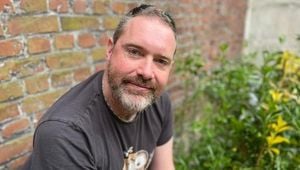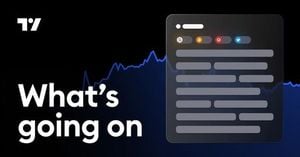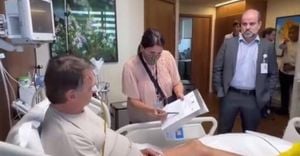Colombian crime figure Fabio Ochoa Vásquez, known for his significant role in the drug trafficking world during the 1980s, has recently gained freedom from federal prison after serving 25 years of his 30-year sentence. His release on Tuesday has raised eyebrows, as he is set to be deported back to Colombia, where he once helped build the perilous Medellin Cartel alongside infamous kingpin Pablo Escobar.
At 67, Ochoa’s history reveals the shadowy underbelly of drug trafficking, where fortunes and lives were lost. Back in the late 1970s and early 1980s, he and his two brothers were pivotal to flooding the United States market with cocaine. This operation allowed them to amass significant wealth, landing them on Forbes Magazine's billionaire list by 1987. The impact of their actions not only enriched them but deeply affected American communities, as they contributed to the heroin and cocaine epidemic gripping the nation.
During the height of his career, Ochoa managed the distribution of cocaine from Miami, marking him as the cartel's linchpin outside of Colombia. His life, and the running of the Medellin Cartel, has become the focal point of various media portrayals, including the popular Netflix series Narcos, which chronicles the rise and devastating fall of the cartel.
Ochoa’s issues with law enforcement began with his indictment for the alleged murder of DEA informant Barry Seal. Seal's high-profile story was later adapted for the film American Made, starring Tom Cruise, adding yet another layer to Ochoa’s already infamous reputation.
His dramatic downfall started with his arrest by Colombian authorities back in 1999, where he found himself on the United States list of the "Dozen Most Wanted" Colombian drug lords. He was extradited to the U.S. and began serving his sentence shortly after. The legal troubles didn’t stop there; Ochoa was arrested again, facing prosecution linked to narcotics trafficking, where he chose to stand trial rather than seek to cut his sentence by entering guilty pleas like many of his accomplices. This decision was reportedly made to fight for his reputation, but it also led to him receiving harsher sentencing.
Despite spending 25 years behind bars, legal experts believe Ochoa may still be retaining significant underground wealth. Richard Gregorie, the former U.S. attorney involved with his case, expressed skepticism during his statements about the lifestyle Ochoa could return to after serving such time. “He won't be retiring a poor man, that's for sure,” he remarked, sparking curiosity about what riches have been hidden and whether they have been preserved during his incarceration.
The intricacies of Ochoa's release typify the challenges faced by law enforcement and the justice system when dealing with high-profile drug lords. Some reports indicate he might have significant assets stashed away, waiting for him upon his return to Colombia. The full extent of his wealth remains unclear, as law enforcement has struggled to track down all proceeds from his extensive drug operations.
The release of Ochoa isn't solely significant due to his past and the wealth he may bring with him back to Colombia. It also raises questions about the state's capability to manage threats posed by established drug warlords, even after serving lengthy sentences. The Medellin cartel's legacy still casts a shadow over Colombia, and Ochoa’s return raises concerns about whether old habits might die hard or if he will stay away from crime.
Colombian authorities have been grappling with the harsh realities of narco-trafficking, especially as they strive to shed the image of being synonymous with these figures. Current Colombian President Gustavo Petro has taken steps to address drug-related violence and reallocate resources to security measures but continues to navigate the tumultuous terrain left behind from various drug trade legacies.
Ochoa's case invites relentless speculation; will he reintegrate or will the allure of his former empire prove too enticing? Experts point out the challenges posed by Ochoa’s departure back to Colombia, alongside the criminal networks still operational within the region. His influence and assets may still play significant roles within these circles, continuing the story of the Colombian drug trade.
Questions remain too, about how the U.S. and Colombia will manage Ochoa’s return. The criminal justice system’s handling of drug lords and officials' willingness to cooperate is often cast under scrutiny. Who monitors them post-release? And what are the ramifications of his reintegration?
With his release, the international community is now watching closely. The concern spans far beyond the personal stories of drug lords and traffickers, entering broader discussions about border control, the impacts of drug use on society at large, and the nested webs of power propelling organized crime.
Fabio Ochoa Vásquez’s saga exemplifies not just the 'war on drugs' but the personal stories of those affected by these criminal networks, including families, communities, and the very fabric of society. His release opens up discussions about rehabilitation, accountability, and the compelling yet dangerous narratives of power and wealth wielded by men like him.
Perhaps the most pressing question now is what lessons can be learned from the Ochoa saga, as it holds the potential for shaping future policies aimed at dismantling the networks of crime and preventing the return of drug lords to power.
While Colombia prepares for Ochoa's return, they must also brace for the incoming spotlight and all the questions it brings about drug trade realities and the past legacies of cartels.
Future analyses will undoubtedly revolve around whether Colombia can truly move forward from its infamous past or if figures like Ochoa are destined to remain central players, even after their bid for freedom from penitentiaries.



